Daily History Lesson – October 21
1797 – The USS Constitution, a 44-gun U.S. Navy frigate built to fight Barbary pirates off the coast of Tripoli, was launched in Boston Harbor. The vessel performed during the Barbary conflicts, and in 1805, a peace treaty with Tripoli was signed on the Constitution’s deck.
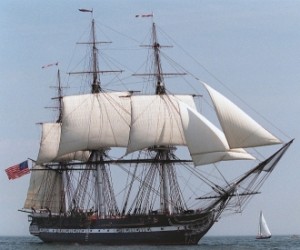
During the War of 1812, the Constitution won its enduring nickname “Old Ironsides” after defeating the British warship Guerriére in a furious engagement off the coast of Nova Scotia. Witnesses claimed that the British shots merely bounced off the Constitution’s sides, as if the ship were made of iron rather than wood. The success of the Constitution against the supposedly invincible Royal Navy provided a tremendous morale boost for the young American republic.
Since 1934, it has been based at the Charlestown Navy Yard in Boston. Over the years, “Old Ironsides” has enjoyed a number of restorations, the most recent of which was completed in 1997, allowing it to sail for the first time in 116 years. Today, the Constitution is one of the world’s oldest commissioned warships afloat.
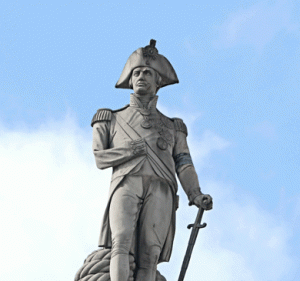
1805 – In one of the most decisive naval battles in history, a British fleet under Admiral Lord Nelson defeated a combined French and Spanish fleet at the Battle of Trafalgar, fought off the coast of Spain.
Nelson divided his 27 ships into two divisions and signaled a famous message from the flagship Victory: “England expects that every man will do his duty.” In five hours of fighting, the British devastated the enemy fleet, destroying 19 enemy ships. No British ships were lost, but 1,500 British seamen were killed or wounded in the heavy fighting. The battle raged at its fiercest around the Victory, and a French sniper shot Nelson in the shoulder and chest. The admiral was taken below and died about 30 minutes before the end of the battle. Nelson’s last words, after being informed that victory was imminent, were “Now I am satisfied. Thank God I have done my duty.”
Victory at the Battle of Trafalgar ensured that Napoleon would never invade Britain. Nelson, hailed as the savior of his nation, was given a magnificent funeral in St. Paul’s Cathedral in London. A column was erected to his memory in the newly named Trafalgar Square, and numerous streets were renamed in his honor.
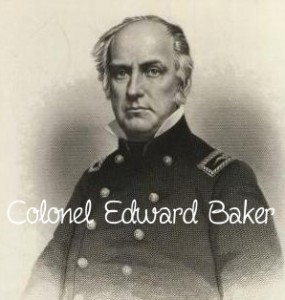
1861 – At the Battle of Ball’s Bluff in Virginia, Union forces under Colonel Edward Baker were defeated by Confederate troops in the second major battle of the Civil War. Baker, a close friend of President Abraham Lincoln, was killed in the fighting.
Baker had placed his men in a dangerous position; a clearing with their backs to a 100-foot high cliff above the Potomac. When the Confederates attacked, Baker was killed and many of his men jumped from the bluff to their deaths or scrambled down a narrow trail only to find their boats swamped in the river.
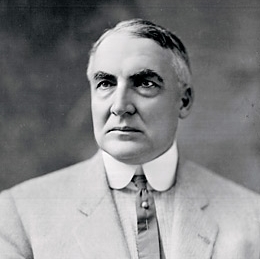
1921 – President Warren G. Harding delivered a speech in Alabama in which he condemned lynchings – illegal hangings committed primarily by white supremacists against African Americans in the Deep South.
See if this sounds familiar. During the 1920 presidential campaign, Harding’s ethnicity was a subject of debate and was used by his opponents to cast him in a negative light. Opponents claimed that one of Harding’s great-great-grandfathers was a native of the West Indies. Harding rebuffed the rumors, saying he was from white “pioneer stock” and persisted in his support of anti-lynching laws.
Although his administration was much maligned for scandal and corruption, Harding was a progressive Republican politician who advocated full civil rights for African Americans and suffrage for women. He supported the Dyer Anti-lynching Bill in 1920. That bill made it through the House of Representatives, but died in the Senate. Several other attempts to pass similar laws in the first half of the 20th century failed. In fact, civil rights for blacks were not encoded into law until Lyndon Johnson signed the Civil Rights Act in 1964.
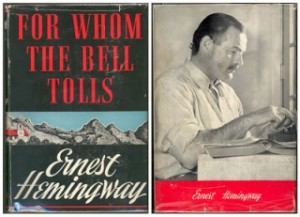
1940 – The first edition of the Ernest Hemingway novel For Whom the Bell Tolls was published.
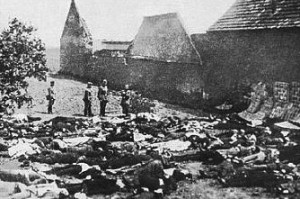
1941 – German soldiers went on a rampage, killing thousands of Yugoslavian civilians, including whole classes of schoolboys.
With Yugoslavian resistance collapsing, King Peter moved to London, setting up a government-in-exile. Hitler then began to carve up Yugoslavia into puppet states, primarily divided along ethnic lines, hoping to win the loyalty of some-such as the Croats, with the promise of a postwar independent state.
Hungary, Bulgaria, and Italy all took bites out of Yugoslavia, as Serb resisters were regularly massacred. On October 21, in Kragujevac, 2,300 men and boys were murdered. Kraljevo saw 7,000 more killed by German troops, and in the region of Macva, 6,000 men, women, and children were murdered.

1958 – Buddy Holly made his final studio recordings at Pythian Temple Recording Studios in New York City. On this day, he recorded ‘True Love Ways’, ‘Raining In My Heart’, ‘Moondreams’, and ‘It Doesn’t Matter Anymore’.
‘It Doesn’t Matter Anymore’ and ‘Raining In My Heart’ were released as a single one month before Holly’s death. ‘True Love Ways’ was released posthumously in 1960 with ‘Moondreams’ as the B-Side .
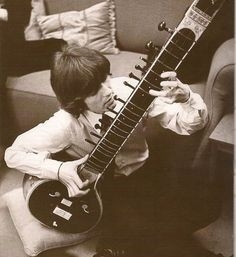
1965 – The Beatles recorded ‘Norwegian Wood (This Bird Has Flown)’, one of the first Western pop songs to feature the sitar, an Indian instrument played by George Harrison.
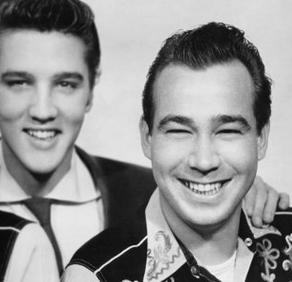
1965 – Bill Black, the bassist in Elvis Presley’s early trio, died from a brain tumor at the age of 39.
Black and guitarist Scotty Moore backed Presley on several of his early hits; ‘Good Rockin’ Tonight’, ‘Heartbreak Hotel’, ‘Baby Let’s Play House’, ‘Mystery Train’, ‘That’s All Right’, ‘Hound Dog’ and ‘Jailhouse Rock’ before leaving in 1957 because of poor wages.
Black then formed Bill Black’s Combo and had hits with ‘Smokie, Part 2’, ‘White Silver Sands’, and ‘Blue Tango’.
Presley was heavily criticized for not attending the funeral, but he believed that his presence would turn into a media frenzy. He decided instead to visit the family privately after the service to express his condolences.
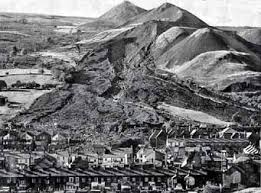
1966 – An avalanche of mud and rocks buried a school in Aberfan, Wales, killing 148 people, mostly young students. The elementary school was located below a hill where a mining operation dumped its waste.
At the Merthyr Vale mine, 36 tons a day of ash, coal waste and sludge were produced. This was piled up in what was known as a tip. The largest Merthyr Vale tip was nearly 700 feet high at the time of the accident. Down a large hill from this tip sat a small farm and the brick Pant Glas elementary school, as well as some homes. In the days leading up to October 21, there was heavy rain in the area. Some mine workers noticed cracks in the tip, but nothing was done to investigate further. The morning of October 21 dawned dark and damp; the area was covered by a thick fog. At about 9 a.m., mine workers heard a loud noise and through the fog saw that the immense tip had disappeared.
It had crashed down the hillside onto the farm, the school and eight homes. Thick black dust enveloped the entire village. The muddy sludge was 45 feet deep outside the school and much of the school itself was buried. There were about 250 people in the school when the avalanche hit and more than half were initially missing. Among those who survived, many had severe injuries.
The next six days of digging brought out only dead bodies, including those of 116 children. The body of the deputy head teacher was found with the bodies of five children in his arms.
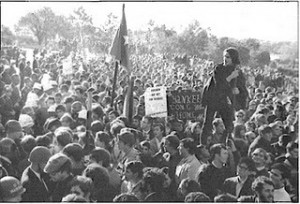
1967 – In Washington, D.C. nearly 100,000 people gathered to protest the American war effort in Vietnam. More than 50,000 of the protesters marched to the Pentagon to demand an end to the conflict. The protest was the most dramatic sign of waning U.S. support for President Lyndon Johnson’s war in Vietnam. Polls taken in the summer of 1967 revealed that, for the first time, American support for the war had fallen below 50 percent.

1975 – Boston Red Sox catcher Carlton Fisk hit a ball that struck the left field foul pole in Boston’s Fenway Park for a home run, giving the Red Sox a 7-6 victory in 12 innings over the Cincinnati Reds in Game 6 of the World Series. The Sox went on to lose Game 7, but still, even 30 years later, the photo of Fisk urgently trying to wave the ball into fair territory provides one of the game’s most enduring images.

1976 – Keith Moon played what was to be his final show with The Who, a concert at the Maple Leaf Gardens, Toronto, Ontario, Canada. Moon was gone within two years, found dead at age 32 from an overdose of Heminevrin, a sedative used to combat his alcoholism.
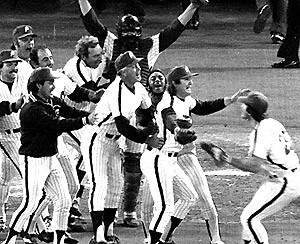
1980 – The Philadelphia Phillies finally won a World Series – 97 years after the club’s establishment.
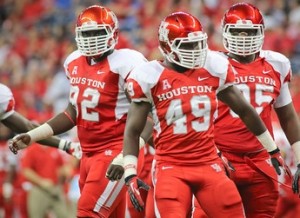
1989 – The University of Houston became the first major college football team to gain over 1,000 yards in a game. In their 95-21 shellacking of Southern Methodist University, the Cougars had 771 passing yards and another 250 on the ground.
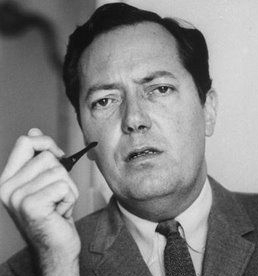
1992 – Jim Garrison, former District Attorney of Orleans Parish, Louisiana, best known for his investigations into the assassination of President John F. Kennedy, died of cancer at the age of 70.
The end result of Garrison’s investigation was the arrest and trial of New Orleans businessman Clay Shaw in 1969. Shaw was acquitted less than one hour after the case went to the jury.
Garrison later wrote three books on the Kennedy assassination, A Heritage Of Stone, which placed responsibility for the assassination on the CIA and claimed the Warren Commission, the Executive Branch, members of the Dallas Police Department, the pathologists at Bethesda, and various others lied to the American public, The Star Spangled Contract,a fiction but based on the JFK assassination, and his best-seller, On The Trail Of The Assassins, which detailed his role in indicting Shaw.
On The Trail Of The Assassins was partially adapted by Oliver Stone for the 1991 film JFK, starring Kevin Costner as Garrison.
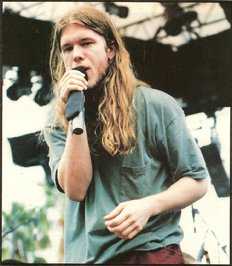
1995 – Shannon Hoon, led singer with Blind Melon (‘No Rain’) died from a cocaine overdose. He was 28.
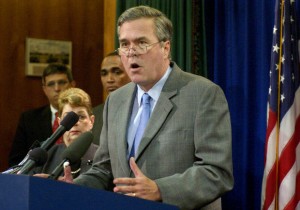
2003 – Invoking a hastily-passed law, Florida Gov. Jeb Bush ordered a feeding tube reinserted into Terri Schiavo, a brain-damaged woman at the center of a bitter right-to-die battle.
Michael Schiavo, Terri’s husband, had won court approval to remove a feeding tube that had provided sustenance for years following the collapse that left her in what doctors called a “persistent vegetative state.” He was opposed by Bob and Mary Schindler, her parents, who argued that she was conscious.
Bush pushed the Florida legislature to fast-track Terri’s Law, which gave him the authority to overrule the court and issue a stay. The bill was declared unconstitutional in 2004. After a lengthy series of appeals were rejected, he tube was removed on March 18, 2005. Terri passed away 13 days later.
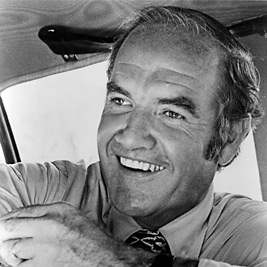
2012 – George McGovern, former U.S. Congressman and U.S. Senator from South Dakota, died of natural causes at the age of 90.
McGovern was the Democratic nominee for president in 1972 but lost to Richard Nixon in an electoral landslide, 520-17.
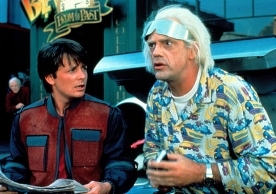
2015 – “We’re descending toward Hill Valley, California, at 4:29 pm, on Wednesday, October 21st, 2015.”
In Back To The Future, Part II, Doc Brown, Marty McFly, and Jennifer Parker arrived in the future from 1985 in the DeLorean time machine.
The “future” is not only here, as of 4:29 pm (Pacific) today, it will be the past.

2015 – Ray Lemire, the guy who compiles this history blog (shown in a photo from his past), has decided to take a couple of weeks off. Let’s see how many people notice this announcement.
If you do, please don’t give it away on Facebook. A simple “I noticed” or “I read it” in the Facebook comment section would be appreciated … and thank you.
Compiled by Ray Lemire ©2015 RayLemire.com. All Rights Reserved.